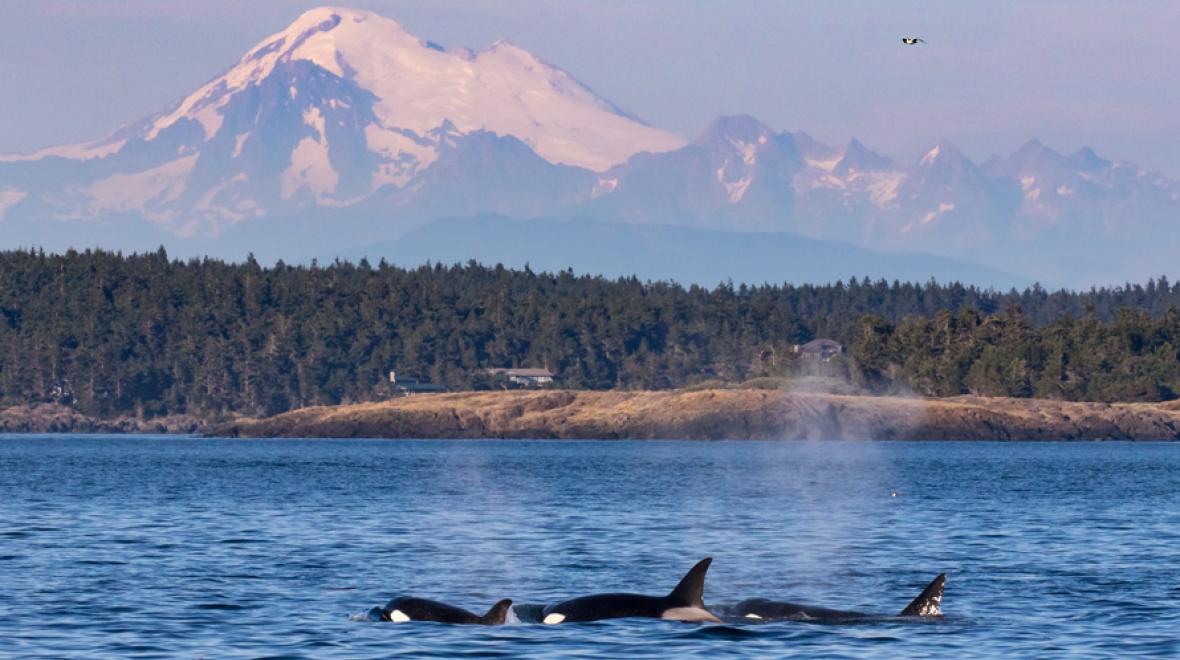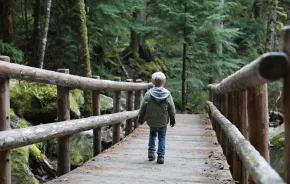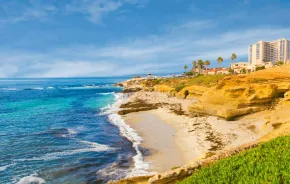
Photo:
Photo courtesy of San Juan Safaris, credit Mark Gardner
1. Eat sustainable seafood
Our Southern Resident whales exclusively eat salmon, and decreased Chinook salmon populations (due to farmed fish, dams and more) have left whales starving. According to Oceans Initiative, research shows that “it will take 30 percent more big, fatty, Chinook salmon than we’ve seen on average over the last 40 years for the [orca] population to reach recovery goals.”
2. Reduce your use of plastic
Use reusable grocery bags, food storage bags, mesh produce bags (for shopping) and more. Invest in reusable water bottles for the whole family. While you’re at it, stop buying beauty products (including exfoliating cleansers and even toothpastes) that contain microplastics.
3. Switch to natural cleaners
Toxic ingredients in laundry detergent and household cleaners can affect an orca’s hormone function and reproductive health. What's worse, an orca mother can even pass these toxins to her calf. Natural cleaning products like baking soda and vinegar are a cheaper and more environmentally friendly alternative.
4. Develop an appreciation for the Puget Sound and beyond
Take the kids on a naturalist-led tide pool trip. Explore our beaches. Go sightseeing. Skip SeaWorld.
5. Only whale watch with responsible tour companies
There are federally mandated laws and viewing guidelines for whale watching companies to ensure orcas are not harmed, disturbed, or otherwise negatively affected by your presence. Before booking a trip, ask about the company’s commitment to these guidelines and local conservation.
6. Take political action
Call your representatives and express your support for the partial removal of harmful dams and the importance of river restoration. Vote against new pipelines and the increased presence of oil tankers — all of which have lasting negative affects on orcas and other whales.
7. Support local organizations working to help our Southern Resident whales and oceans in general
The Center for Whale Research and Oceans Initiative are great places to start. You can also adopt an orca from the Whale Museum in Friday Harbor.











